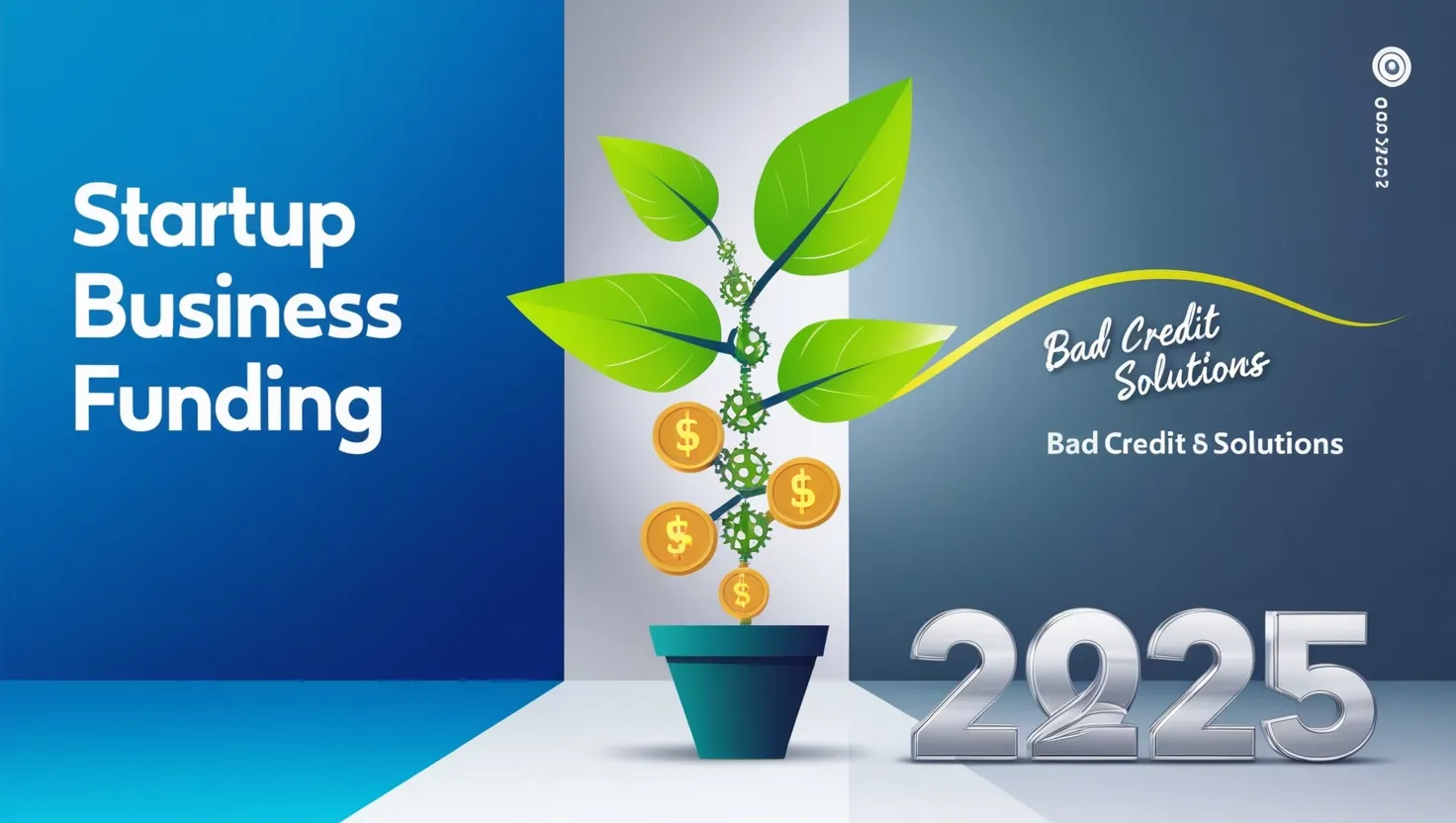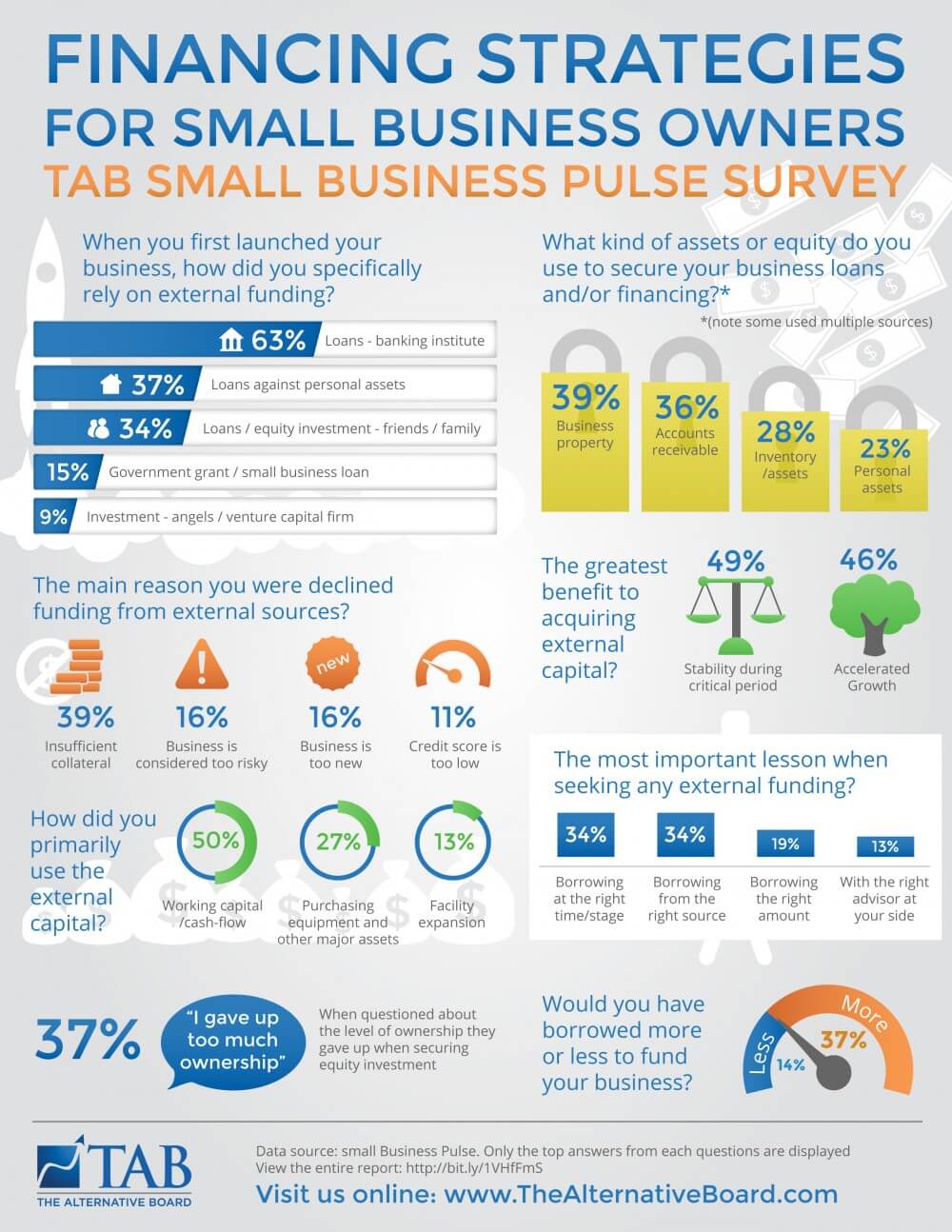Startup Business Funding Bad Credit Solutions for Entrepreneurs in 2025-Starting a business is an exciting journey, but one of the biggest hurdles entrepreneurs face is securing the necessary funding. If you have bad credit, the challenge of finding the right financial support can feel even more daunting. However, in 2025, there are more solutions available than ever before to help entrepreneurs with bad credit secure startup business funding. From alternative lenders to government programs and crowdfunding, this article will guide you through the options and strategies to fund your business, regardless of your credit score.
1. Understand the Impact of Bad Credit on Startup Funding
Before diving into funding options, it’s essential to understand how bad credit can impact your ability to secure startup business funding. Bad credit is generally defined as a credit score below 580. With a lower credit score, traditional lenders, such as banks, may view you as a high-risk borrower. This can make it more difficult to get approved for a business loan, and if you are approved, the interest rates may be higher, which could be a significant burden on your startup’s finances.
However, bad credit doesn’t automatically mean you’re shut out of funding opportunities. Many non-traditional lenders and funding sources are more focused on your business’s potential than your credit history. Understanding your financial situation and being proactive about exploring alternative solutions can increase your chances of success.
2. Alternative Lenders: A Flexible Solution

If you have bad credit, alternative lenders may be one of the best ways to secure startup business funding in 2025. These lenders tend to have more lenient eligibility requirements compared to traditional banks, often focusing on your business’s cash flow, revenue, or other financial metrics rather than your credit score.
Some common types of alternative lenders include:
Online Lenders
Online lenders, such as Kabbage, OnDeck, and Fundbox, have revolutionized the lending process, making it easier for entrepreneurs to access funds. These platforms use technology to assess your business’s health, including cash flow, sales data, and other key performance indicators. With less reliance on your credit score, online lenders can offer fast and flexible funding options for startups.
Peer-to-Peer (P2P) Lending
Peer-to-peer lending connects you with individual investors who are willing to fund your business. Platforms like LendingClub and Prosper allow you to submit a loan request, and investors can choose whether to back your business. While your credit score may still be a factor, the personal nature of these loans often leads to more flexibility in terms.
Invoice Financing
If your business has outstanding invoices, invoice financing could be an option to access funding. With invoice financing, a lender will advance you a percentage of your unpaid invoices, and then collect the payments from your customers. This option is especially useful for startups that are waiting for customer payments but need immediate cash to continue operations.
3. Crowdfunding: A Creative Way to Fund Your Startup
Crowdfunding has grown significantly in popularity, providing an innovative and accessible way to raise capital for your startup. Platforms like Kickstarter, Indiegogo, and GoFundMe allow you to present your business idea to a large audience of potential backers. In return for their support, you can offer rewards, early product access, or even equity in your business, depending on the platform and your funding goals.
Crowdfunding can be particularly useful for entrepreneurs with bad credit, as it doesn’t rely on your financial history. Instead, success depends on the strength of your idea and your ability to market it effectively. Here are some tips for a successful crowdfunding campaign:
- Create a compelling pitch: Clearly articulate your business idea, the problem it solves, and why it’s worth supporting.
- Offer valuable rewards: Give backers something in return for their support, whether it’s a product, service, or exclusive content.
- Promote your campaign: Use social media, email marketing, and other platforms to generate awareness and drive traffic to your crowdfunding page.
Crowdfunding can be a game-changer for startups, especially for those who may struggle to access traditional funding options due to bad credit. (Read More: Is a Startup Business Line of Credit Right for Your Small Business?)
4. Government Grants and Programs for Startups

In 2025, there are various government grants and programs designed to help entrepreneurs with bad credit get their businesses off the ground. While grants can be competitive and difficult to secure, they are an attractive option because they don’t need to be repaid.
The U.S. Small Business Administration (SBA) is a key resource for entrepreneurs seeking startup business funding. The SBA offers several loan programs that are more accessible to those with bad credit, such as:
SBA Microloans
The SBA’s Microloan Program offers loans up to $50,000 to small businesses, including startups. These loans can be used for working capital, equipment, or inventory. While your credit score may still play a role in the application process, the SBA works with non-profit lending partners who are often more flexible with credit requirements.
Community Advantage Program
The SBA’s Community Advantage Program is designed to provide funding to businesses in underserved areas. It offers loans up to $250,000 and may be an option if you have bad credit but are located in a low-income or rural area.
Grants.gov
For non-repayable funding, you can explore government grants through Grants.gov. The site provides a centralized location to find federal grants, including those for small businesses and entrepreneurs. Although competition is fierce and the application process can be time-consuming, securing a government grant can provide a significant boost to your business without incurring debt.
5. Seek Out Angel Investors
Angel investors are individuals who invest their personal funds into startups in exchange for equity or convertible debt. Unlike venture capitalists, angel investors typically provide early-stage funding and may be more willing to take risks on startups with bad credit, particularly if they see strong growth potential.
Finding an angel investor can be challenging, but there are networks and online platforms like AngelList, SeedInvest, and Gust that connect entrepreneurs with potential investors. When approaching angel investors, it’s important to have a well-prepared business plan that highlights your market opportunity, revenue model, and growth potential. (Read More: Top Qualifications for Business Credit Card Approval in 2024)
6. Personal Loans and Lines of Credit
If you’re unable to secure business-specific funding due to bad credit, you may want to consider personal loans or lines of credit as a way to fund your startup. Personal loans are unsecured loans that can be used for business purposes, and they may have more flexible terms than traditional business loans. However, keep in mind that the interest rates on personal loans can be higher if you have bad credit.
A personal line of credit is another option that offers more flexibility. With a line of credit, you can borrow up to a certain limit and only pay interest on the amount you use. This can be particularly helpful for businesses that need ongoing access to funds, such as for inventory purchases or operating expenses. (Read More: 5 Key Benefits of Using a Startup Business Line of Credit in 2025)
7. Building Business Credit

If you’re serious about long-term success, it’s worth taking the time to build your business credit. Even with bad personal credit, you can start building your business’s credit history by opening business credit accounts, paying vendors on time, and maintaining a positive relationship with suppliers.
Having strong business credit can help you qualify for better financing options in the future, making it easier to secure funding as your startup grows. Additionally, business credit can help separate your personal and business finances, providing more clarity and protection as your business develops.
Conclusion article Startup Business Funding Bad Credit Solutions for Entrepreneurs in 2025
Securing startup business funding with bad credit may seem difficult, but it’s far from impossible. In 2025, there are more resources than ever before to help entrepreneurs with less-than-perfect credit secure the funding they need to launch and grow their businesses. From alternative lending options and crowdfunding to government programs and angel investors, there are numerous pathways to get your business off the ground.
By exploring these options and approaching funding with a well-thought-out strategy, you can overcome the challenges posed by bad credit and set your business on the path to success. Stay persistent, be creative, and remember that securing the right funding is just one step toward turning your entrepreneurial dreams into a reality.




